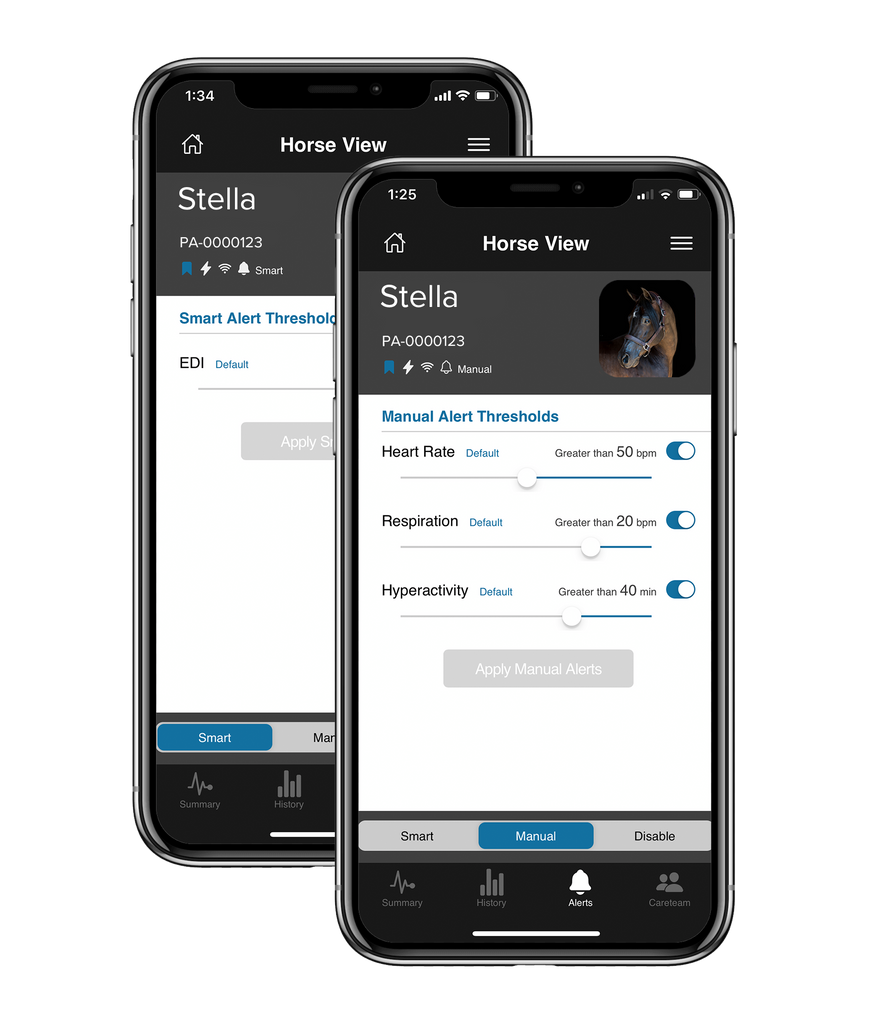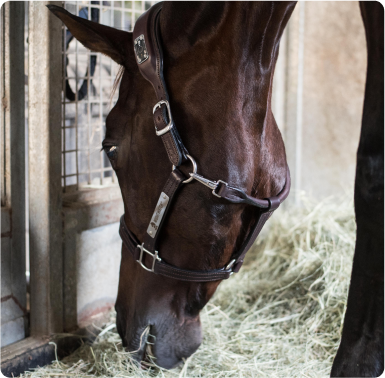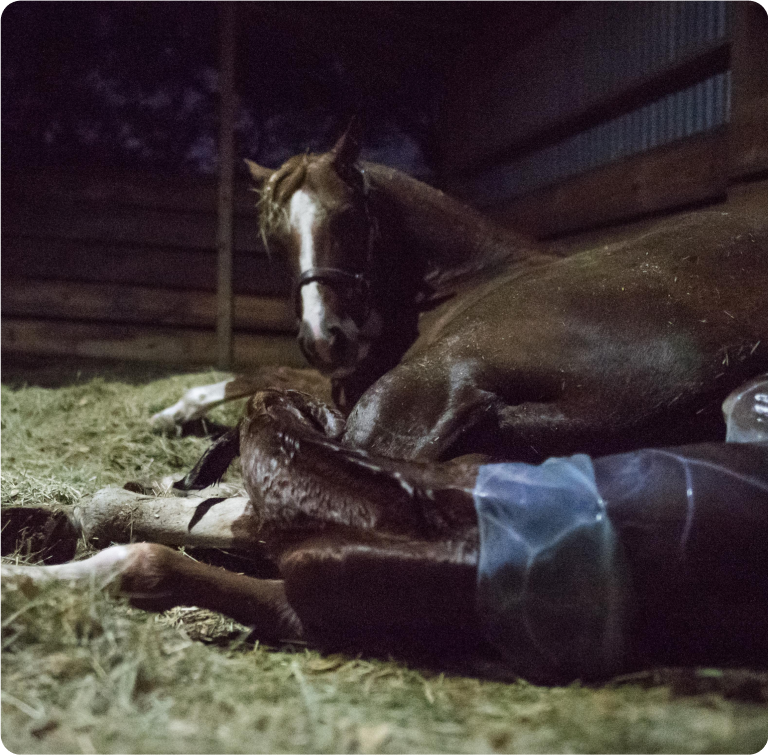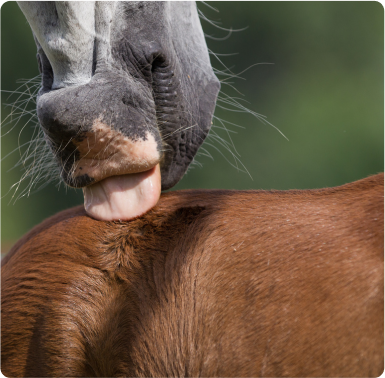- 19x Abnormal placenta
- 8x History of illness during pregnancy
- 21x Foals with seizures (in the first 24 hours)
- 6x Foals with complications (during hospitalization)
It is believed that most mares foal at night because it’s an innate survival advantage for the new foal to be ready and able to run with the mare by first daylight.

Select an EDI® score (1 to 10) representing degree of deviation from your horse’s normal biometric and behavior parameters.
Set your own threshold for heart rate, respiration, and/or activity level indicating agitation, discomfort, or restlessness.



so you can be by their side when they need you most, and closely monitor your mare for complications before, during, and after birth.
30 days prior to her foal date and monitor her for at least 3 months thereafter.
between multiple horses making it a must have for every owner, breeder, trainer, and veterinarian this foaling season.